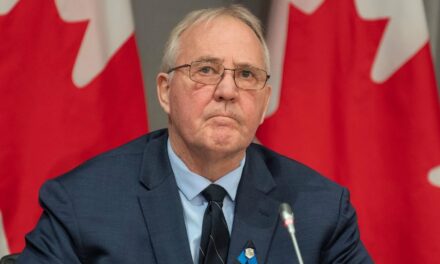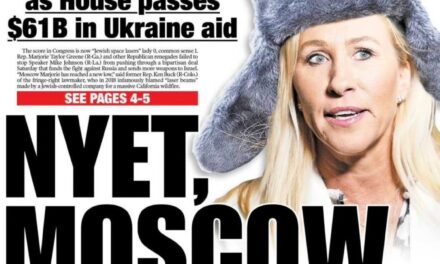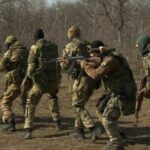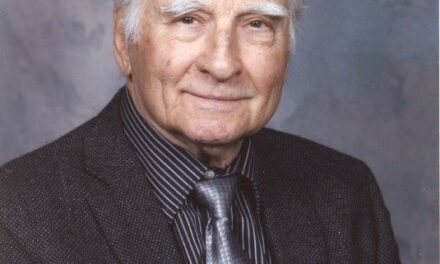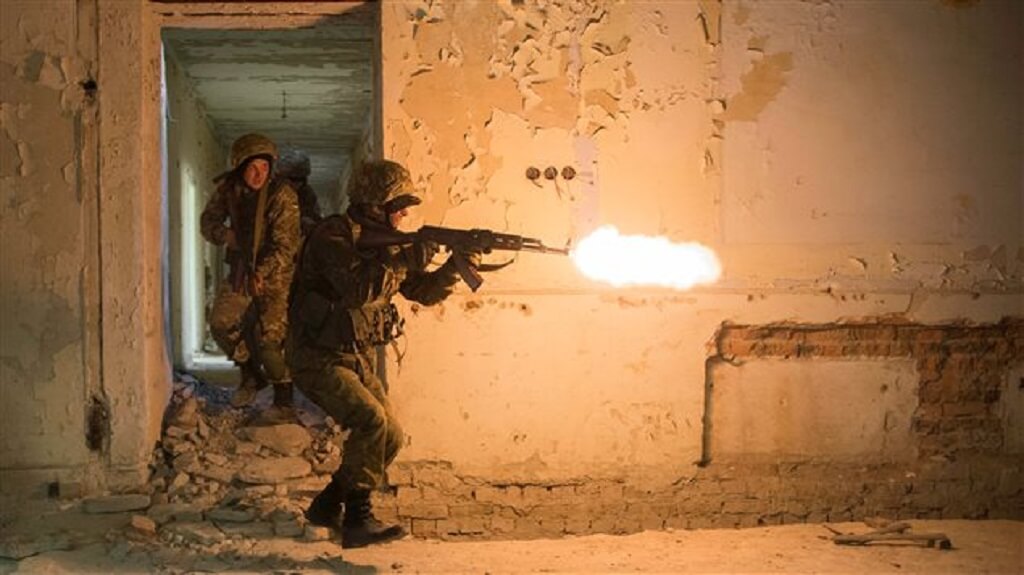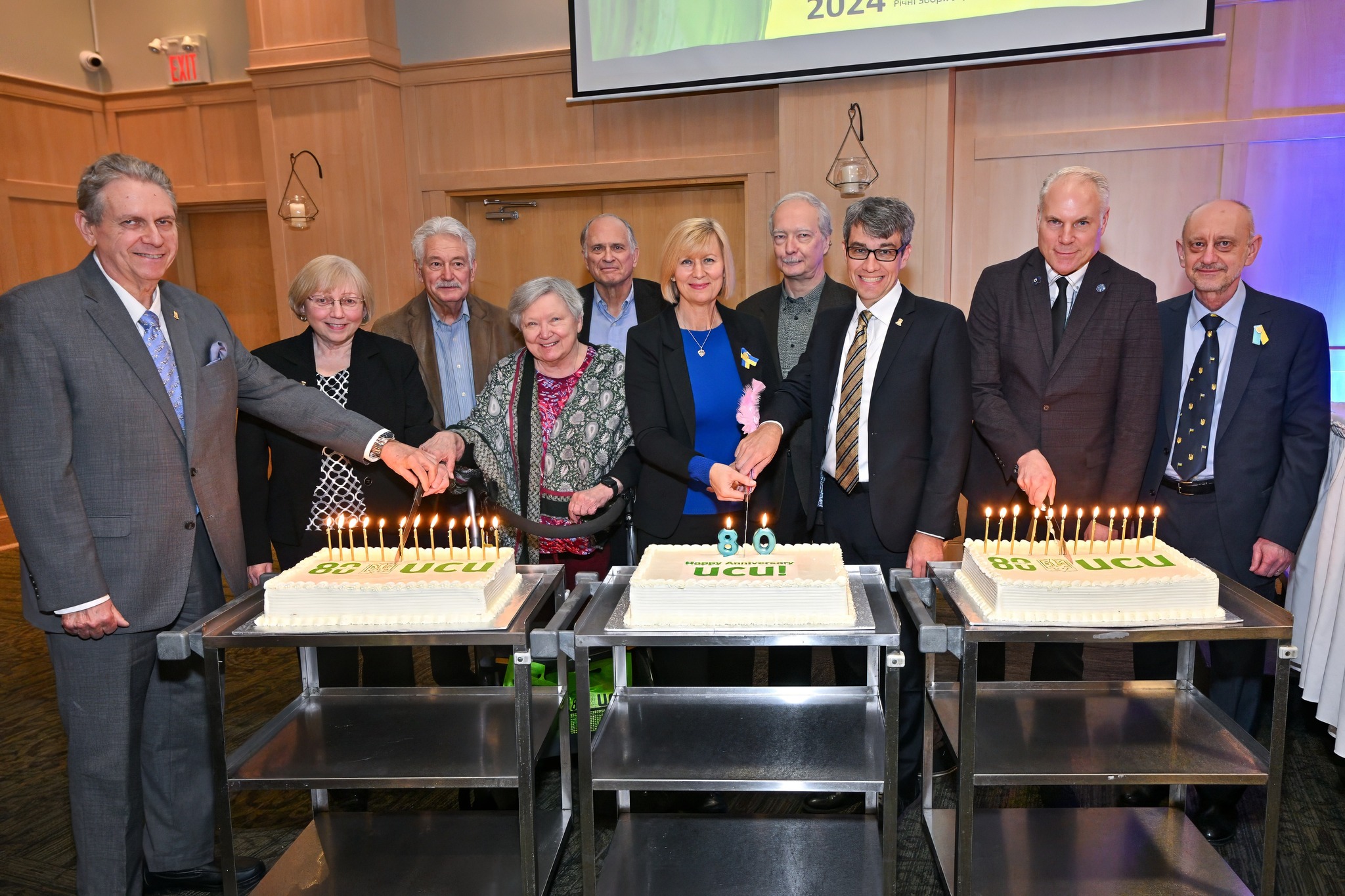New Pathway.
Last week, the New Pathway received the following opinion editorial from Chrystia Freeland, Canada’s Minister of Foreign Affairs, and Harjit S. Sajjan, Canada’s Minister of National Defence, titled “Canada’s unwavering support for Ukraine”:
“We recently announced that the Government of Canada’s military training mission in Ukraine, Op UNIFIER, will continue for another two years. By renewing this mission we not only continue to build upon the strong economic, social, military and cultural ties between Canada and Ukraine, but we publicly send a message of deterrence to Russia. Canada is proud to continue to be at the forefront of the international community’s support to the people of Ukraine as they strive for security, sovereignty and stability.
Over the past year, Canadian Armed Forces members deployed on Op UNIFIER have focused on transferring professional soldier skills to members of the Ukrainian Armed Forces. Over 3,200 Ukrainian soldiers have received training in combat support, weapons and marksmanship, explosive threat recognition, military policing, and combat first aid. We are pleased that these training efforts will continue. Earlier this year, our government announced the appointment of Jill Sinclair to Ukraine’s Defence Reform Advisory Board. Ms. Sinclair is a distinguished public servant with experience in foreign affairs and defence, and she is making a valuable contribution to the Ukrainian Defence Reform Process.
Canada stood shoulder-to-shoulder with Ukraine during the Maidan revolution and subsequent Russian military annexation of Ukrainian territory. We stand with Ukraine now and into the future. Since 2014, Canada has participated alongside our NATO allies in efforts to maintain security and stability in Central and Eastern Europe. We send a strong message of deterrence to Russia by continuing our military training in Ukraine, through our air policing in Romania, our frigate in the Black Sea, and our recently-announced Canadian-led NATO battlegroup in Latvia.
Canada’s long-standing and resolute commitment to the people of Ukraine was highlighted during Prime Minister Trudeau's visit last year, when our two countries signed a landmark free trade agreement. We look forward to meeting with Minister Stepan Poltorak to sign the Defence Cooperation Agreement between our two nations.
Military assistance is part of Canada’s whole of government support for Ukraine, which includes development and humanitarian assistance, bilateral trade, and military and defence cooperation. Operation UNIFIER represents a critical piece of our multifaceted assistance to Ukraine, as the Canadian Armed Forces help to build, develop, and modernize Ukrainian Armed Forces’ capacities. Additionally, the partnership between our militaries has further strengthened the wonderful relationship our two nations share. We are thankful for the warm welcome Canadians receive whenever they visit Ukraine, and want to thank the people of Ukraine for the kindness and hospitality they continue to show to our soldiers.
Canada and Ukraine share a unique bond. Canada is determined to support the people of Ukraine as they build a more secure, stable and prosperous country.”
In his speech, delivered to Parliament on March 20, 2017, Minister of National Defence Harjit S. Sajjan said that since the summer of 2015, Canadian military personnel stationed in Ukraine have trained more than 3,200 Ukrainian soldiers. Over 90 training programs, which the Canadian Armed Forces delivered in that time, included infantry to small team training, explosive ordnance disposal, military policing, medical training, and modernized logistics. Minister Sajjan said that the next rotation of Canadian Armed Forces in Ukraine, made up mostly of the members of the 1 Canadian Mechanized Brigade Group, based in Edmonton, Alberta, will continue tactical soldier training. This will involve individual weapons training, marksmanship, tactical movement, explosive threat recognition, communication, combat survival, and ethics training. He said, “We will continue to train Ukrainian soldiers on explosive ordnance and improvised explosive device disposal. We will continue to teach force and basic investigative techniques as part of military police training. We will continue to provide casualty evacuation and combat first aid training as well as ongoing logistics system modernization.”
Minister Sajjan also promised that Canada will support strategic institutional reform of Ukraine's defence establishment, enhance its peace support operations and military interoperability, help with the capacity building and professional development in the military.
Over the recent years, Canada's assistance to Ukraine has included non-lethal military equipment, such as tactical communications systems, a mobile field hospital, explosive ordnance disposal equipment, tactical medical kits, and night-vision goggles. Minister Sajjan said: “Our next shipment will include first aid kits, military police training materials, and more explosive ordnance disposal equipment. This is vital equipment that will enhance the capability of the Ukrainian armed forces while at the same time reducing the financial burden on the Ukrainian government.”
In addition to the Operation UNIFIER, which has recently been renewed until March 2019, Canada is directly involved in central and eastern Europe, in support of its NATO allies, through Operation Reassurance that also remains effective until March of 2019. In June this year, Canada will be deploying 455 army personnel in Latvia. Canada will be one of four framework nations to establish and lead a multinational battle group, it has a frigate on an ongoing rotational basis in the Mediterranean and the Black Sea, and is conducting periodic air policing in the region.
Also on March 20, MP Borys Wrzesnewskyj (Etobicoke Centre, Lib.) in his statement in the House of Commons remembered Russian Ambassador to Washington Sergey Kislyak's visit to Ottawa, in his capacity as Russian Deputy Foreign Minister, about ten years ago: “Back then, I confronted Kislyak about Russia’s cyber-attacks on Estonia and its use of gas supply cut-offs to intimidate Ukraine. Ten years of diplomatic resets, the result: Russia is exponentially more belligerent. Then, Russian cyber-attacks shut down Estonia. Today, they undermine the integrity of the U.S. presidential elections. Then, Russia punished Ukraine for its pro-Western policies with gas shut-offs. Today Russia’s war against Ukraine: 10,000 killed, 2 million displaced. Diplomatic engagement must include the strength of military conviction. Renewed Operation UNIFIER is a clear geo-political deterrent to Russia’s revanchist imperial intents.”
Later in the day, Mr. Wrzesnewskyj participated in the debate on the extension of Operation UNIFIER, Canada’s military training mission supporting Ukraine, and underscored: “As part of Putin’s hybrid global war against liberal democratic values and governments, Russian hydrocarbon billions corrupt political and corporate elites in the West… Far right nativist parties and movements are financed…political elections are sabotaged, the U.S. presidential election is hacked and there is Montenegro’s attempted coup d’état. However, in this amorphous borderless Global Hybrid War, there is a hard military front line. It stretches from the Baltic to the Black Sea… On this hard military front line, there is an active regional war in Donbas. There the Kremlin is testing the resolve of the democratic West. Will the West sacrifice Ukraine in the hope of satisfying Russian revanchist neo-imperialism in the manner that Czechoslovakia was sacrificed by the West after the invasion of Sudetenland? Canada has made it clear that there will be no appeasement. While we diplomatically engage Russia, sanctions will continue, and the Canadian military will continue to deploy into Ukraine to help train and equip the Ukrainians as they head to the front lines.”
In his speech on March 20, Minister Sajjan used some strong language related to the conflict in eastern Ukraine, such as “Sustaining [Canada's] support is essential, especially now as Ukraine faces increased provocation from Russia. We have recently seen the worst outbreak of violence in eastern Ukraine since 2015. Members of the Standing Committee on Foreign Affairs can attest, from their visit to Ukraine last January, that Russia refuses to respect Ukraine's sovereign territory. Canada has consistently condemned the Russian Federation's violation of the territorial integrity of Ukraine.”
Last week, the New Pathway asked Jill Sinclair, the Canadian representative to the Ukrainian Defence Reform Advisory Board (DRAB), how Canada is treating the conflict in eastern Ukraine, as a separatist movement or a Russian aggression. She said: “I think Canada has been clear since the outset of Russian aggression against Ukraine that it's Russian aggression against Ukraine, in Crimea and in the East. I think Canada’s language has been pretty clear about that since the outset.”
At the same time, ever since the beginning of the Russian aggression, Ukraine and its global Diaspora have been calling on the Western countries, including Canada, to provide Ukraine with lethal weapons. This request has been unanswered by both the previous and current Canadian governments. The petition to the House of Commons, initiated by Yuri Shymko, President of the International Council in Support of Ukraine, on March 21, and sponsored by MP James Bezan (Selkirk-Interlake-Eastman, Cons.) calls on the government to provide RADARSAT-2 imagery to the Ukrainian military (provision of this imagery was cancelled by the government in May 2016); provide lethal defensive equipment to Ukraine; and add Ukraine to the Automatic Firearms Country Control List. The last measure would make Ukraine eligible to receive Canadian automatic weapons.
Share on Social Media







